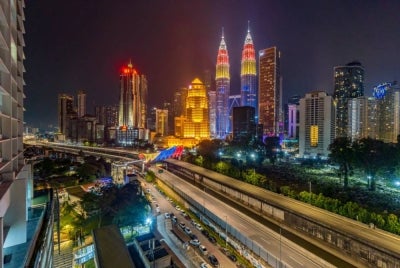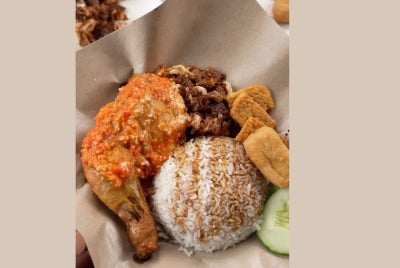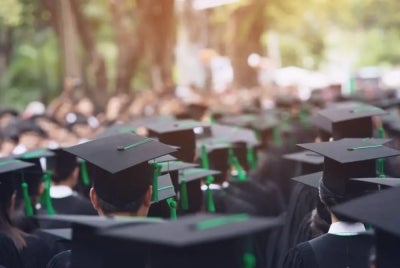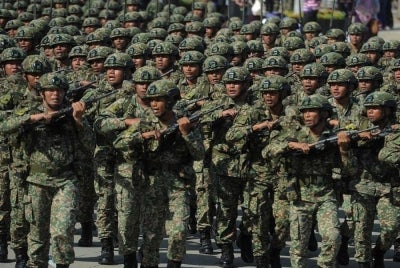Ramadan brings communities together around the world
Brian D McFeeters, US Ambassador to Malaysia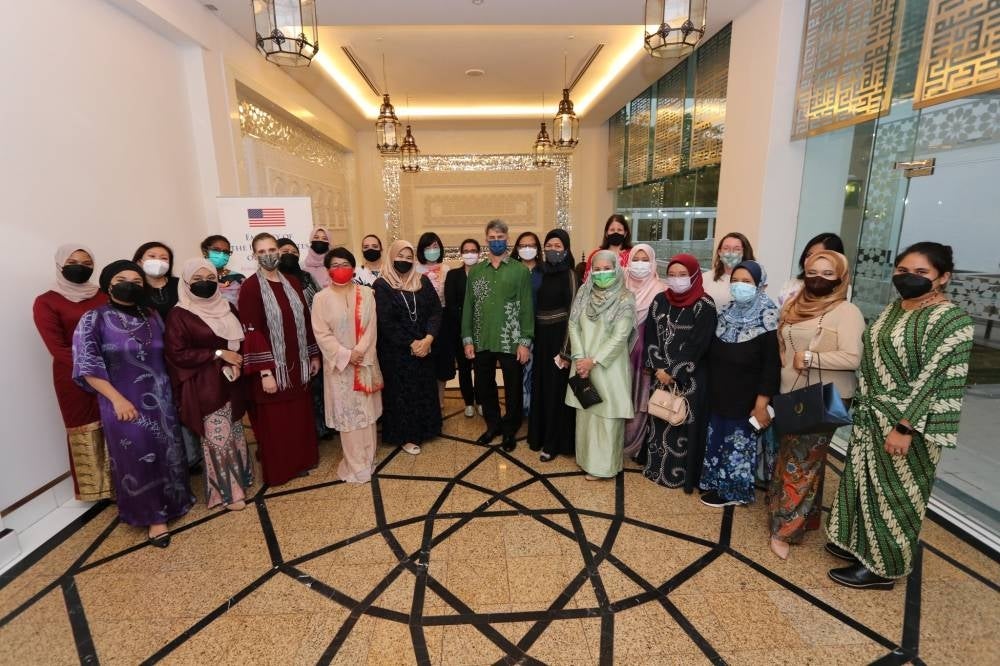
This year, the month of Ramadan brings with it an added sense of celebration as Malaysia reopens – for the first time since the pandemic began, many families can finally reunite and more bazaars are open.
We are grateful for Malaysia’s vaccination campaign, one of the most rapid and successful in the world, and we have been honored to play a part in Malaysia’s fight against Covid-19.
The hardships we’ve faced during the pandemic have underscored the spirit of Ramadan as a time for Muslims and non-Muslims to join together in the face of adversity. Ramadan is a time for compassion, self-reflection, and generosity. And the Covid-19 pandemic has brought all of this to the fore.
Even during movement control orders and other restrictions necessary to control the pandemic, people found ways to come together to observe Ramadan safely. As a newly appointed Ambassador last year, I was humbled to host Masjid Jamek’s Imam Besar Ustaz Haji Yahya Mahyuddin for buka puasa at my residence with several other Muslim guests and to hear him perform the azan to mark the breaking of the fast.
Later, I joined the Imam for a buka puasa for the homeless at Masjid Jamek.
This year, I’m looking forward to hosting several majlis berbuka puasa. In keeping with the tradition of commitment to service, we are focusing a number of the iftars on the issues of the environment and women’s empowerment.
As we observe Ramadan here in Malaysia, I am also reminded of the millions of Muslims observing Ramadan across the United States.
They reflect the diversity of our country and the respect we have for pluralism. American Muslims, including many serving here in Malaysia at the U.S. Embassy, host numerous interfaith iftars for their non-Muslim friends and neighbors, where they open their homes and share their traditions.
People from all over the world who visit and live in the United States – be they students, travelers, or immigrants – also observe Ramadan.
A highlight of Ramadan for us at the Embassy every year is finding out how the thousands of Malaysian students studying in the United States are observing this holy month.
From New York City to Wyoming, they are breaking fast with fellow Muslims in the United States and introducing American host families from Colorado to Ohio to Ramadan traditions.
Recently, Ariana, a Malaysian exchange student in Clearfield, Pennsylvania, shared how her host parents and close friends have been fasting with her. More Malaysian exchange students will be sharing their Ramadan experiences in the US on the US Embassy Kuala Lumpur and Education USA Instagram accounts.
I cannot wait to hear more stories about how they are observing Ramadan, celebrating Hari Raya, and connecting with Americans across the United States.
The observation of Ramadan in the United States has a long history – the first White House iftar was held over 200 years ago by one of the founders of the United States and our third president, Thomas Jefferson. Jefferson had also purchased a Quran for his personal library, and the Quran was one of the first books in the US Library of Congress.
Americans have long celebrated religious diversity and promoted the freedom to practice one's faith.
Our country’s greatest strength is and always has been our diversity, including the multitude of faiths and beliefs. From the earliest days of our nation, courageous people from every part of the world have come to the United States in search of religious liberty, risking everything to flee the persecution they faced for their beliefs.
Freedom of religion is enshrined in our Constitution’s First Amendment as well as in Malaysia’s Federal Constitution and the Universal Declaration of Human Rights.
Around the globe, people are subject to horrifying persecution for their faith and beliefs.
There are Muslims around the world who are forced to observe Ramadan under repression, detention, and grave humanitarian crises.
We continue to call for all governments to respect freedom of religion or belief.
As President Biden said, “We must continue our work to ensure that people of all faiths — or none — are treated as full participants in society, equal in rights and dignity.” During this month, a sacred time for Muslims around the world, I also reflect on and celebrate religious freedom and the commitment to advance mutual respect and understanding in both our countries.
In my first year in Malaysia as Ambassador I’ve had the honor of visiting houses of worship from many different faiths – Masjid Negara, Sin Sze Si Sze Ya Temple, Sri Mahamariamman Temple, Seri Jayanti Buddhist Temple, Gurdwara Sahib Sentul as well as many others around the country.
It is amazing to see so many places of worship – Muslim, Buddhist, Christian, Hindu, Taoist, Sikh—all coexisting within steps and minutes of each other. There is value in having mutual respect and understanding among all religions.
On behalf of U.S. Embassy Kuala Lumpur, I wish all Malaysians of the Muslim faith a blessed Ramadan. Ramadan Kareem.
Download Sinar Daily application.Click Here!

